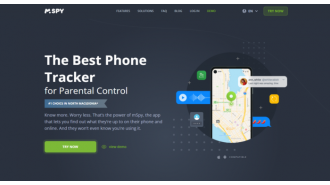I had £25,000 debt, but it took me years to realize I had money.
Lisa has successfully managed her money by making one significant change.

Lisa Maynard-Atem had been carrying a heavy burden for years - a whopping £25,000 debt that seemed to grow bigger each day. It affected her sleep and loomed over her like a dark cloud, a constant reminder of her financial struggles. "I would go through my day, trying to focus on my job, but that debt was always there in the back of my mind," Lisa recalls. "It was like a weight constantly sitting on my shoulder."
Her journey towards debt-free life started when she was just a teenager, taking out a loan for her first car. "I needed it because I didn't have enough money at the time," she explains. But soon, the loans, credit cards, and overdrafts started piling up, and before she knew it, Lisa was drowning in debt. "At first, it didn't seem like a big deal," she says. "But then I started going out with friends and spending more than I could afford. It crept up on me slowly but surely."
In 2010, Lisa got a new job in London with a salary of £40,000. Fed up with dodging letters demanding repayment, she took a day off work to face her debts head-on. "I called all the companies I owed money to and made a plan to pay off my debt by the end of 2012," she says. It was a painful process, but Lisa knew she needed to take control of her finances.
She ended up paying off her debt earlier than expected, in November 2012. "It was the hardest 11 months of my life," Lisa admits. "But when I made that final payment, I slept like a baby. It was such a relief to know that everything I owed was finally paid off."
But Lisa didn't stop there. She wanted to make sure she wouldn't find herself in debt again, and she also had no savings. "I knew I needed to go back to basics," she says. "I started keeping a cash book and tracking all my expenses. I also made a spreadsheet to manage my income and spending. It wasn't easy, but I was determined to turn my financial situation around."
In 2020, Lisa came across an article about renting clothes and decided to give it a try. "At first, I thought it was a bit weird," she laughs. "But then I found all these beautiful pieces in my wardrobe that I wasn't wearing anymore. I didn't want to sell them, so I decided to rent them out."
She started with one dress on the Hurr app and quickly received rental requests. "I ended up putting 20 pieces on the app, but I had to pause them because I was getting so many requests," Lisa says. Her collection mainly consists of frilly gowns and pink dresses, perfect for parties and weddings. "People can rent them for a specific event, and they'll tell me how long they need the garment and why," she explains.
Lisa charges per day, and the price depends on the piece. In the first year, she made £3,000, and since then, it has steadily increased. "Sometimes I have to pause my rentals if I'm away for work, but for the most part, it's been a consistent source of income for the past four years," she says.
Thanks to her clothing rental business, Lisa was able to save up for a deposit on a three-bedroom house. "I reinvest 50% of what I make from renting into buying new pieces and maintaining the ones I have," she explains. "The other 50% is invested elsewhere." She has since left her job as a director of marketing and inclusion and is now a self-employed entrepreneur.
Lisa wants to encourage others to take control of their debts early on and to consider finding a side hustle. "I don't regret anything, but I do wish I had started managing my finances a year earlier," she says. "It could have made a big difference. I come from a humble background, so I had to figure it out on my own. But I'm grateful that my love for fashion has helped me become more knowledgeable about managing my money."
She also believes that having a second stream of income can be helpful, especially during difficult times. "Renting my clothes has been a game-changer for me," Lisa says. "In the beginning, I didn't take it seriously, but now I realize that I was sitting on money without even knowing it. It has allowed me to invest and save for the future. I think everyone should consider finding a side hustle, especially during a recession and a high cost of living. It can make a big difference."
15 Views










